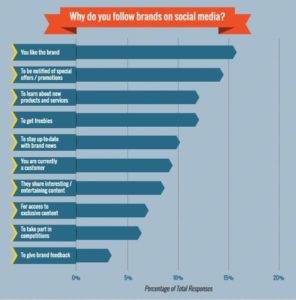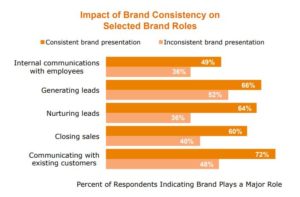
What is your business known for? Have you established a branding that people easily associate with your business whenever they see a product, a logo, a color or a name? Do you want your business to be known for its exceptional customer service?
People often associate the word ‘brand’ with the answer to all of these questions. A brand pertains to a much deeper aspect of your business that surpasses what a mere logo, name or color can provide. One of the best definitions of the word ‘brand’ was given by Mark McCulloch who said that a brand is a promise delivered.
Still, many businesses believe they’re fulfilling their brand promises without even consulting their customers. Businesses are often so highly focused on ensuring products and services are delivered as promised that they forget to check to see if customers feel that they were as well.
Understanding Brand Perception
Brand reputation is dictated by customer perception – whatever consumers think your brand represents is exactly what it is, regardless of your opinions and beliefs. If customers don’t perceive your brand as you expected them to, it might be time to adjust accordingly.
Your brand is defined by what the market thinks it is and not what you believe it should be. The saying, “the customer is always right” holds true.
Before you venture out of your organization and conduct a customer feedback survey, examine your efforts internally. Reflect on what your business stands for, and how employees and management team are strengthening or weakening your mission and vision.
When everything has been settled inside the organization and everyone is moving in unison, you can then look outward. Consult the views of current customers, leads and opinion leaders regarding how your brand is performing. You can also employ the help of a mystery shopper to provide you with a comprehensive customer viewpoint. Using their perspectives, you’ll be able to identify if there are gaps between your brand aspirations and what promises your brand actually delivers on.
Another way customers usually gauge a brand is by comparing its performance with the competition. By matching the benefits and weaknesses of each brand based on their experiences, they’re able to discern whether to put you at the top or the bottom of their list of preferences.
What makes you stand out and different from the competition? By conducting research with the help of a mystery shopping agency like SeeLevel HX, you’ll get an in-depth analysis of how your competitors are doing. We’ll provide you with a comprehensive report that will help you identify what edge you have over other brands as well as your weakness that may be holding your brand back.
What You Can Do
Here’s a brief guideline of what you can do to enhance your brand reputation management and ensure your brand perception is aligned with what your company intends for it to be.
1. Value your values.
In business, or in any other endeavor, it’s important to mean what you say. You can forget about the elaborate and impressive vision and mission posted on your office wall if no one’s following it. If you want people to see your business as you expect them to, the management team and employees should embody the very branding you’re trying to represent.
Staying true to your beliefs is easier said than done. Sometimes, you’ll face situations wherein you’re given the choice to follow the principles you’ve set for your business and risk losing a potential increase in revenue or set aside what you brand fosters in exchange for a bigger payout. Whichever path you choose, know that your customers will recognize your choice, and it will reflect on your brand reputation.
Customers will know if you are only in it for the money. They won’t trust anything you say because they will know you don’t mean it. On the other hand, if your brand genuinely strives to build a relationship with customers, it will be reciprocated and will bear fruit in the future.
Never compromise on what you claim to be your brand reputation. Every time you do, inconsistencies are created, leading to the devaluation of your brand reputation and eventually, the dismissal of your standing in the market. You might disagree and think that this advice is unrealistic and impractical, but it’s the best way to build a trustworthy brand that your customers will believe in.
2. Listen to customer feedback.
Do you know which of your products appeal the most to customers? What do customers often complain about regarding your brand? How will you know what your brand reputation is? There are many tools and ways to analyze these metrics, but getting customer feedback is one of the most efficient and most reliable ways to identify brand perception.
With the popularity of social media platforms, social listening is one of the methods you can pursue to get an idea of what people are saying about your brand online. It allows you to discover pain points and gives you also the opportunity to interact with consumers by answering their queries and replying to their comments. This gives you a front-row seat to unfiltered and genuine consumer opinion.
Fig. 1. Reasons why people follow brands on social media
(Source: BuzzStream)
By examining online conversations, you’ll get a picture of your brand reputation in the eyes of your customers. Depending on the results, you’ll have a few options of which to direct your branding.
First, if your brand reputation is taking a hit and customer feedback surveys continue to reveal disappointing figures, consider rebranding. This time, make sure you give more attention to what customers are saying they want and need, rather than simply focusing on the features of your product or service.
On the other hand, if the majority of your customer feedback is positive, but their perception of your brand is different from what you want to offer, consider tweaking your brand reputation management. It’s possible that what you’re doing differs from your brand statement, causing a mismatch on your end. Remember you have to walk the walk and talk the talk in displaying your company values.
3. Be consistent.
In addition to focusing on your mission and vision and ensuring it resonates throughout the organization, you should make sure they’re observed consistently. Otherwise, it will only promote conflict between your actions and marketing campaigns, affecting not only internal departments but also customer perception.
Fig. 2. Impact of brand consistency and inconsistency in various business aspects
(Source: LucidPress)
Your brand identifies your business, so don’t make it a habit to change it often. Instead, be consistent about telling the world what your business represents. Inconsistency damages credibility, and customers rely on credibility when choosing to do business with a certain company.
It takes time and practice before a company’s branding becomes ingrained in their employees’ minds. When it has become second nature for the whole organization, customers will trust your brand to deliver what it promises.
Conclusion
Your company’s brand is not something you can just believe in and expect consumers to do the same. Brand reputation strongly depends on public opinion. Nonetheless, you still have control regarding how customers see your business. It requires practice, consistency and focus to create a solid brand presence that will help you maintain a constant connection with your audience.
For an in-depth analysis of your brand reputation, it’s best to hire the service of a mystery shopping service like SeeLevel HX. With over 90 years of combined experience, we are experts in examining brands from the perspective of a customer. Ready to know what customers are saying about your brand and improve your brand reputation? Let’s discuss how our team can support your efforts.



